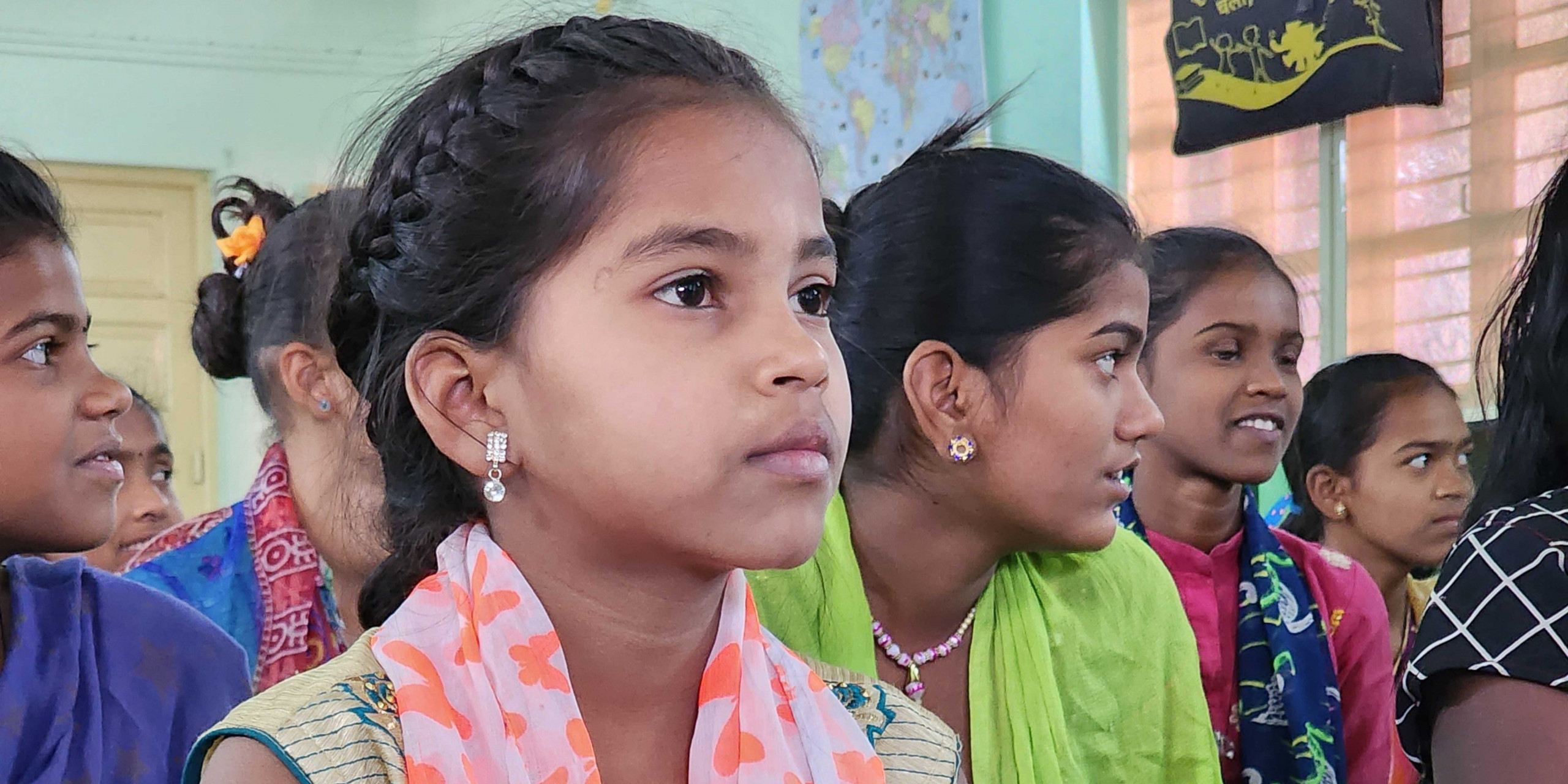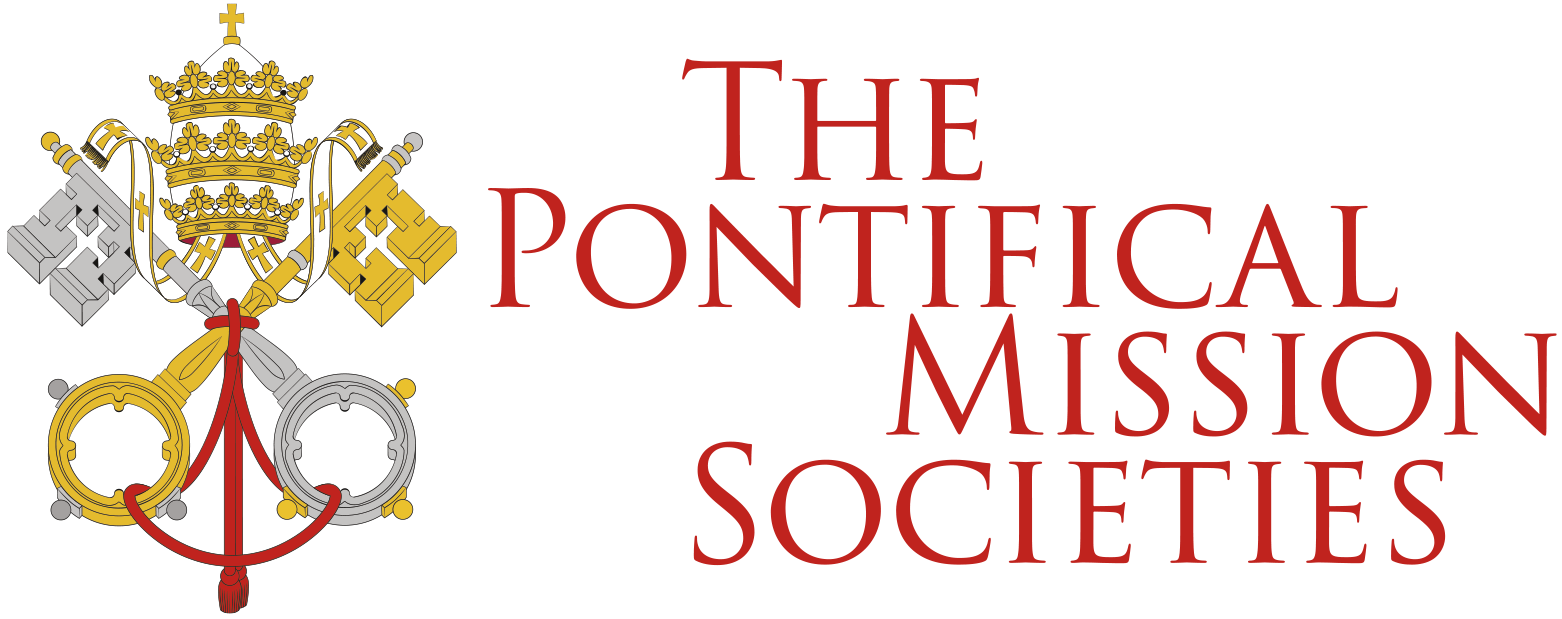
Some 45 years ago, St. John Paul II, during his inauguration Mass – which coincided with World Mission Sunday– told the world: “Do not be afraid. Open, I say open wide the doors for Christ. To His saving power open the boundaries of states, economic and political systems, the vast fields of culture, civilization, and development.”
In missionary territories, meaning those places around the world where the Catholic Church is too young, too poor, or actively persecuted, being not afraid and carrying Christ’s saving power to all the realms of life is a request that takes a whole different meaning.
1.4 billion inhabitants.
20 million Catholics (1.6 percent of the population).
174 dioceses.
Receives 3 million USD from The Pontifical Missions USA.
Take, for instance, India: With 1.4 billion inhabitants, the 20 million Catholics living here represent less than 1.6 percent of the entire population. Even though Christ was first introduced in this subcontinent in 52 A.D. when Thomas the Apostle reached what today is the state of Kerala, most Catholics are converts, and too many, even today, pay the ultimate price for their faith, much like Doubting Thomas did two millennia ago.
Christian minority in Kandhamal
This August marks the 15th anniversary of the carnage that descended upon the impoverished Christian minority in Kandhamal, a district of the eastern Indian state of Odisha. A series of riots led by radical Hindus left roughly 100 people dead, thousands injured, 300 churches and 6,000 homes destroyed, and 50,000 people displaced, many forced to hide in nearby forests where more died of hunger and venomous snakebites.
The violence was carried out by mobs adorned with saffron headbands, a sign of right-wing Hindu militancy, and shouting slogans such as “Jai shri ram!” (Victory to the Hindu god). Attackers wielded rods, tridents, swords, firearms, kerosene, and even acid. Christians who refused to deny Christ were buried alive, set ablaze, or gutted in front of their children.
In many cases, the government refused to acknowledge the dead because the wind had carried the ashes away, and most of those killed were so poor that they had never even been registered as having been born.
Violence against Christians throughout India
To be sure, the 2008 pogrom was hardly an isolated incident. Violence against Christians throughout India continues routinely today, although on a smaller scale. In December, the U.S. Commission on International Religious Freedom expressed “outrage” that India had not been designated a “country of particular concern” by the U.S. State Department’s religious freedom report, claiming the omission was tantamount to “turning a blind eye (…) to particularly severe religious freedom violations.”
For example, Christians are passed on for government jobs. State laws make it virtually impossible to open new parishes in many regions. The Dalits -formerly known as untouchables in India’s caste system- lose the affirmative actions taken by the national government to make up for historical oppressions. The government’s justification for
depriving Dalit Christians of their rights is that they have the support of Christians worldwide.
Yet despite the constant threat of physical violence faced by India’s Christian minority, according to Cardinal Oswald Gracias, archbishop of Mumbai, Catholics are a “vibrant community, seen not only in our attendance at Sunday Mass, but also in the involvement in different activities.”
Beyond evangelization, the local Church has three priorities that the cardinal listed during an interview with MISSION Magazine in March: Education, outreach to rural areas where people have no access to drinkable water or electricity, and the empowerment of girls in a country where child marriage is banned by law but not by culture.
Social justice and loving one another
Throughout India’s 174 dioceses, “self-help” groups focus on providing a better future by tackling the lack of work opportunities.
The Church is training and paying thousands of animators throughout India to work with indigenous villagers and Dalit populations. The Constitution ensures educational interests and provides economic safeguards for tribals, but corporations have exploited the lack of documentation of ownership to access their mineral-rich lands for decades.
These animators, teachers, and health and social workers who are women in disproportional numbers, are not necessarily Christian, but they share the Catholic Church’s commitment to social justice and loving one another. They face challenges such as child marriage, addiction, and the villagers’ lack of awareness of the importance of health. They also encourage parents not to treat their girls differently from their boys and discourage child marriage, fighting the idea that a girl must be married when she reaches puberty.
As UNICEF reports, India has the largest number of child brides in the world, and girls are perceived to have no alternative but to be married off. Animators work to change that perception by empowering girls and educating their parents.
Animators also use interactive songs to teach children. They are proud of their successes, which go beyond educating boys and girls: 46-year-old Shailaja said the paraprofessional degree she received from the Archdiocese of Bombay allows her to ensure her tribal rights are honored, and she is not afraid of going into government offices and demanding basic needs, such as toilets for the villages where she works.
Working to raise funds
In Tamil Nadu state’s Diocese of Chingleput, Father Raji, a parish priest with two missions under his care, has a monthly salary of $187, which he often uses to buy medicines or food for the 35 families in his parish. At the request of these families, he is working hard to raise the $28,000 needed to build a church at the St. Francis Xavier mission substation.
Ramaye, a 51-year-old Dalit woman born Hindu but converted to Christianity long ago, is among those working to raise funds. She was forced to marry as a child to her maternal uncle, who is 30 years her elder – meaning that she was around 12, and he was 42 when they married.
“After I encountered Christ, I understood the dignity of the human person -all of us, women and men,” Ramaye said. “And I knew I couldn’t let my three daughters be married off when they were still girls. All of them were allowed to marry for love.”
She has been unable to work for months because she must stay home and care for her husband. When asked why she was more worried about raising funds to build a church, she answered, “When you trust in God, and praise him with everything that you do, everything else will be fine.”
“It gives us a great joy to be able to do this as disciples of Jesus,” Cardinal Oswald said.
“I invite you all to come and visit us, see firsthand the work we are doing, and hopefully partner with us so that we can share some of our vibrancy with you, but also continue to help the millions here in my country who rely on your support not only to get to know Christ, but also to survive.”
“If nothing else, let’s partner in prayer: I ask you to pray for the Church in India, and I will pray for the Church in the United States and in all other mission countries, in the knowledge that the Holy Spirit is with us. Christ is with us,” he said.



